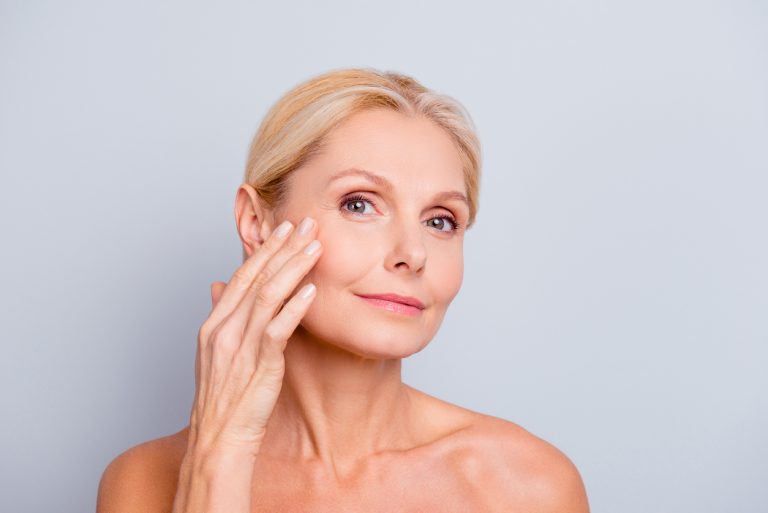
How menopause affects your body
Menopause is a process that will happen to all women at some point in their life. It is the time when you stop experiencing your monthly period, and it is most often the end of the reproductive lifecycle.
Dr Michael Rich is a specialist dermatologist who has been performing tumescent liposuction for over 30 years. Find out if Liposuction is suitable for you at ENRICH Clinic.
At ENRICH Clinic, we have a wide range of dermatological and cosmetic body treatments tailored to individual body and patient needs.
At ENRICH Clinic, our treatments are performed by our medical team consisting of doctors, nurses, and dermatologists and are tailored to each patient’s skin health needs.
ENRICH Clinic is committed to your skin health and well-being with a range of dermatological & cosmetic treatments tailored to the individual. Our treatments are performed by our medical team consisting of doctors, nurses, and dermatologists.
Skin health is essential for everyone. ENRICH Clinic has a wide range of technologies and dermatological solutions to help you achieve your skin care goals.
 The vaginal wall is made up of very dense connective tissue. Many nerves link through this area. The vulva is lined by special skin cells, making the vulva more ‘skin-like’ than the vagina, with even heftier blood and nerve supply than anywhere else on the human body.
The vaginal wall is made up of very dense connective tissue. Many nerves link through this area. The vulva is lined by special skin cells, making the vulva more ‘skin-like’ than the vagina, with even heftier blood and nerve supply than anywhere else on the human body.
The anatomical structure of the vagina and vulva mean that like other areas on the body, both can have their collagen and elastin damaged, aged, and stretched to the point where it doesn’t bounce back. This stretching results in what we think of as a ‘loose’ vagina and saggy labia.
Vaginal deliveries can cause stretching of the connective tissue of the vagina and the vulva (including the labia), and as it heals, it may never recover its former elasticity and firmness. The older you are when you give birth vaginally, the less your tissue bounces back, since collagen and elastin production naturally slows down over time.
Age and hormones affect the condition of the vagina and vulva. As the vagina and other local structures are stretched out, other issues can arise like stress urinary incontinence (urine leakage when you laugh, cough or sneeze) and atrophic vaginitis (dry, irritated, easily-damaged vulvar and vaginal tissue).
One of the issues that may arise with vulvovaginal laxity is reduced sensations during sex, which can have a negative impact on relationships and partner pleasure.
An element of laxity of the vulva is its appearance. The labia majora (outer vaginal lips) or labia minora (inner vaginal lips) can cause discomfort and irritation when wearing tight clothes and during sex.
Labia minora can droop or dangle lower than they used to, causing discomfort at times. Orgasms can slip away and become much harder to achieve due to a lack of friction caused by laxity or looseness of the vagina.
We have treatments that can contract vulvovaginal tissue, tightening the top few layers of the vagina and vulva, and promoting new collagen formation. The old collagen may have been stretched, so the formation of new collagen is imperative when tightening and rejuvenating vaginal and vulvar tissue.
Our Intimate Program combines several treatments that tighten tissue, restore natural vaginal moisture, improve sexual sensitivity, and have a significant positive impact on stress urinary incontinence. This works best with mild to medium symptoms.
Dr Afrah Mazher performs our Juliet treatment for vaginal rejuvenation and she is passionate about improving these symptoms in women.
Located in Melbourne, ENRICH Clinic has been performing these in these non surgical laser solutions for mild to moderate symptons of laxity and incontinence and aids in vaginal rejuvenation and tightening, for many years now.
We use the Juliet laser and the ThermiVa in our intimate program. These two energy-based high-tech devices work on different layers of tissue to get a deeper, more thorough treatment than just one device on its own.
Lasers always work from the outside in, and the Juliet is no different. The Juliet works on the topmost layers of vulvovaginal tissue, stimulating collagen and elastin production and tightening the existing fibres.
The effect is an immediate tightening of tissue, but the longer-term effects become apparent over the coming months. Collagen and elastin can only be produced at a certain rate by the body, so it naturally takes time for the greater effect to become apparent.
The ThermiVa is a radiofrequency device that is able to reach deeper levels of tissue than just the Juliet on its own. We use the ThermiVa and the Juliet together to reach the superficial and deeper layers of tissue in the vagina and on the vulva.
Radiofrequency waves are able to get further into tissue, so we get a dual action from both devices. The Thermi Va is performed by our nursing team.
When we treat vulvovaginal laxity, we run the devices over the external vulvar areas, while also treating deep inside the vagina. The entire vaginal area, including as much of the urinary tract as we can access, can be successfully treated. We also access the perineal area where required. If our handpiece can get to it, we can treat it.
Stretched vulvovaginal tissue can severely impact one’s sexual satisfaction, making it difficult to become naturally lubricated and reach orgasm.
Research is discovering that nonsurgical vulvovaginal treatments are improving women’s sex lives, as well as making life more comfortable in some very personal ways. Tightening vulvovaginal tissue results in greater friction, and stimulating the cells means improved natural levels of moisture.
Stress urinary incontinence is a serious imposition, but tissue laxity or poor pelvic floor function is the cause. While nonsurgical treatments can’t reach the pelvic floor, they can improve the tissue integrity of the urethra. One of the greatest achievements of these treatments has been the success in reducing stress urinary incontinence.
The jury is still out on just how much tightening is able to be achieved, but this is due to individual variances in tissue and how far energy can penetrate and the fact that each patient is different and can react differently, even slightly each time. These treatments are a valuable start in helping women live a life where laughing and sneezing can come and go without an issue, and sexual pleasure is back on the agenda.
There is emerging research into non-surgical vaginal treatments for what’s known as the genitourinary symptoms of menopause (GSM). These symptoms include vaginal dryness, atrophy, cracking and bleeding, itching, and urinary stress incontinence.
Lasers have been found to provide improvements in sexual discomfort and atrophy and reduce vulvovaginal symptoms. Lasers were also found to be effective in improving laxity and dryness.
Radiofrequency was found to produce statistically significant improvements in vaginal laxity, sexual satisfaction, improvements in stress urinary incontinence, vaginal atrophy and orgasms. The average reduced time in one study was 50 per cent, with improved tightness, moisture, and sensitivity. Others showed improvements in vulvar appearance and sexual function.
The Thermi Va and Juliet treatments are for mild incontinence and mild vaginal laxity issues. They are not vaginal surgeries such as vaginoplasty and labiaplasty. We do not perform vaginal surgery at ENRICH Clinic. Surgery may be needed for more serious issues. It is important to talk to your physician before undertaking any vaginal treatment.
Please note – we do require a clear pap smear and a referral from a GP or specialist before undertaking the procedure.
If you are coming to Melbourne from interstate or overseas, please mention this to our booking staff so we can make appropriate arrangements and apprise you of the consultation process.
Want more information? Give us a call on 03 9500 9500
ENRICH Clinic is located here in Melbourne.
Contact us
*With all surgeries or procedures, there are risks. Consult your physician (GP) before undertaking any surgical or cosmetic procedure. Please read the consent forms carefully and be informed about every aspect of your treatment. Surgeries such as liposuction have a mandatory seven-day cooling-off period to give patients adequate time to be sure of their surgery choice. Results may also vary from person to person due to many factors, including the individual’s genetics, diet and exercise. Before and after photos are only relevant to the patient in the photo and do not necessarily reflect the results other patients may experience. Ask questions. Our team of dermatologists, doctors and nurses are here to help you with any of your queries. This page is not advice and is intended to be informational only. We endeavour to keep all our information up to date; however, this site is intended as a guide and not a definitive information portal or in any way constitutes medical advice.
"*" indicates required fields
Combining Dr Rich’s dermatological skill with his knowledge of restorative skin regimes and treatments, the ENRICH range is formulated to help maintain and complement your skin. Our signature Vitamin C Day & Night creams are now joined by a Vit A, B,&C Serum and a B5 Hyaluronic Gel, both with hydration properties and much, much more.

Menopause is a process that will happen to all women at some point in their life. It is the time when you stop experiencing your monthly period, and it is most often the end of the reproductive lifecycle.

Vaginal rejuvenation involves non-invasive laser and radiofrequency treatments that tighten lax urethral, vaginal and vulvar tissue.

Compounding the benefits of your treatments by combining treatments can make a huge impact on results: the 1 + 1 = 3 effect!

Internal Laser Vaginal Rejuvenation The Juliet with V Spot Erbium: YAG laser is the latest technology in fractional laser systems for gentle, effective vaginal rejuvenation
Subscribe to the ENRICH newsletter and receive latest news & updates from our team.
Enrich Clinic acknowledges the Traditional Lands of the Wurundjeri Woi Wurrung and Bunurong peoples of the East Kulin Nations on which we work and trade. We pay respect to their Elders past, present and emerging. We extend our acknowledgement and respect to the LGBTQIA+ community who we welcome and support. Read our full Acknowledgement Statement here
